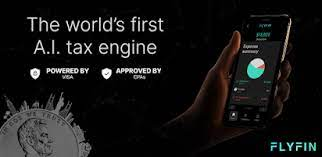Technology will always find a solution to your problem and try to minimize your work barrier. Computer systems that can act like human tasks are called artificial intelligence (AI). There is no teaching component here, and instead, the goal is to build a neural network that takes in large amounts of data and makes algorithms to help it determine the best way to perform a task. AI technology places its footprint in every sector, and Flyfin AI is the top best one for dealing with tax administration. Here are the lists of the role of AI in tax administration:
It helps to find the possible deductions and tax credits
There are several roles to play by artificial intelligence in the tax administration. Among them, the first role is AI helps to find out the maximum possible deduction and tax credit for you. Experts said that people fail to save their money without knowing tax deduction options. But this technology kicked off that barrier, and through its deep analysis of the code, it understands the tax code and easily identifies the tax deduction details. So, the AI helps find out the possible deduction and saves your money.
Taxation automation
AI could automate repetitive processes in taxation systems, such as document processing and entering account numbers or IDs into spreadsheets. Manual workers will take huge time to complete the taxation work without the help of technology. But the AI will minimize your work time and complete the job as much as quickly. It aids in the efficient filing of taxes and reduces overall processing time. AI could also assist in identifying important aspects of a document. Get benefits for tax work from Flyfin AI and save your money and time.
Classification of tax players
AI has gained more popularity for its efficiency in calculations, and yes, it can do all kinds of statistical analyses. Based on an analysis of their past and present behavior, the AI can create a detailed profile of each taxpayer, allowing for a more accurate prediction of how they will behave in the future. Consumption patterns of a natural person can be identified using "machine learning" technology in the context of electronic invoicing.
It improves the Tax forecasting
Tax professionals habitually use AI technology to maximize accurate tax forecasting. AI can elevate tax forecasting techniques from simple modeling techniques such as linear interpolation or basic regressions to superior predictive analytics. Algorithms, for example, could analyze corporate and seasonal data to aid in the detection of trends across various taxes filing cycles, annual, quarterly, monthly, or even more frequently. These patterns could then be used to forecast what will happen next. Weather data could even be included in the analysis, allowing for more accurate sales and tax burdens forecasting.
It can assist you in making strategic decisions
Tax planning frequently receives insufficient attention because tax teams are preoccupied with more routine tasks. Artificial intelligence tax software reduces, if not eliminates, much of the human labor involved in these tasks, freeing up time for tax strategy planning. Strategic decisions play a crucial role in making money, and the wrong decision might lead to heavy loss. But AI can help with more than just time savings it can also help with strategic endeavors such as regulatory law and corporate strategy.
It helps to find out potential tax fraud cases
Many business people make fake invoices to save their fraudulent money, and this technology helps to find out those tax fraud cases. The great artificial intelligence software is now being used by tax authorities to identify cases with characteristics that may indicate potential fraud. It frequently aids in the discovery of subtle hints hidden in mountains of data that auditors may miss or overlook.
Bottom line:
Finally, the points listed earlier are the major roles of AI in tax administration. The use of artificial intelligence (AI) in tax systems has the potential to reduce bias and corruption. With the world moving at breakneck speed and data volumes exploding, implementing AI would, at the very least, make our existing systems far more efficient and accurate.

Comments
Post a Comment